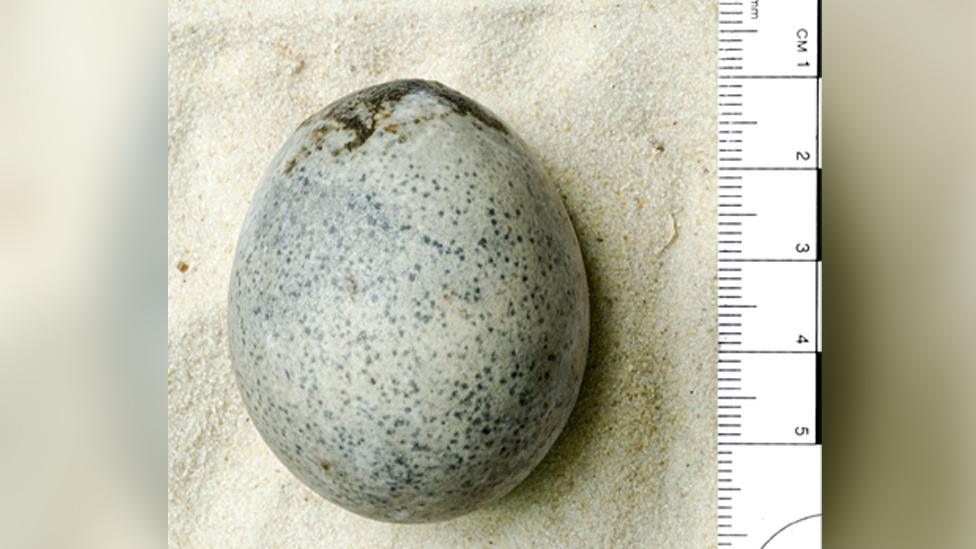A 1,700-year-old chicken egg could reveal secrets about the Romans
- Published
- comments

This egg was found at the bottom of a watery pit and is thought to have been put there 1,700 years ago
Archaeologists have made an EGG-citing discovery during a dig of what is believed to be a Roman wishing well.
The team in Aylesbury, in Buckinghamshire, found a complete chicken egg with the liquid contents still inside.
It is thought the egg, which was found in an ancient woven basket at the bottom of a watery pit, is around 1,700 years old.
Experts from Oxford Archaeology say they unintentionally broke three other eggs in the find, which all released a "potent stench", but the fourth egg remained intact.
What next for the ancient egg?
Archaeologists needed to prevent the egg breaking up as they removed it during the dig
The team described it as a "truly unique discovery" for researchers and historians - as it could reveal a lot we don't know about the Romans, who lived around 2000 years ago.
The team will use advanced technology to study its extremely delicate shell and contents, all the time hoping to not break it.
A micro scan has found that the egg still contains the yolk, egg white and an air sac.
It is believed to be the only intact egg ever discovered from the Roman period of history.
Edward Biddulph, senior project manager at Oxford Archaeology, which oversaw the egg-scavation, said finding the only intact egg from the period in Britain was "amazing... the fact that the egg still retains its original contents, however, is absolutely incredible".
A scan confirmed the Roman egg found in Aylesbury was complete
He said: "We were absolutely blown away when we saw the contents in there, as we might have expected them to have leeched out."
The eggs were discovered on the dig in Aylesbury, which is known for being a treasure trove for people studying the Romans.
The dig took place between 2007 and 2016, but years later the Roman egg is "still revealing its secrets".
Researchers at the University of Kent and experts from London's Natural History Museum have also been taking a look.
- Published11 September 2023
- Published30 May 2023
- Published12 February
- Published9 February
